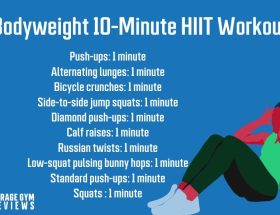Strength training is a crucial element of any fitness regimen, helping individuals build muscle, increase endurance, and improve overall health. However, many people tend to overlook the importance of proper recovery in their training routine. In fact, recovery is just as important as the actual workouts themselves, as it is during the recovery period that muscles repair and grow stronger.
Understanding the Recovery Process
When you engage in strength training, whether it be lifting weights, doing bodyweight exercises, or using resistance bands, you are essentially breaking down muscle fibers. This process creates microscopic tears in the muscle tissue, which triggers the body to repair and rebuild the muscles, making them stronger and more resilient.
However, this repair and rebuilding process can only occur during periods of rest and recovery. If you do not give your muscles enough time to recover between workouts, you run the risk of overtraining, which can lead to injuries, decreased performance, and burnout.
The Importance of Rest Days
Rest days are an essential component of any strength training program. These are days where you either take a break from working out entirely or engage in light, low-impact activities such as walking, yoga, or stretching. Rest days allow your muscles to recover and repair themselves, reducing the likelihood of injury and improving overall performance.
It’s important to listen to your body and give it the rest it needs. If you are feeling excessively fatigued, sore, or unmotivated, these may be signs that you need to take a rest day. Remember, rest days are not a sign of weakness or laziness, but rather a crucial part of the training process.
Optimizing Recovery
There are several strategies you can implement to optimize your recovery and ensure you are getting the most out of your strength training workouts:
1. Nutrition
Proper nutrition is key to supporting muscle recovery and growth. Make sure to consume an adequate amount of protein, carbohydrates, and healthy fats to fuel your workouts and replenish your muscles. Additionally, staying hydrated is crucial for optimal recovery.
2. Sleep
Sleep is when the body does most of its repair and recovery work. Aim for 7-9 hours of quality sleep each night to support muscle growth and overall performance. If you have trouble sleeping, try implementing a bedtime routine, such as reading, meditating, or taking a warm bath before bed.
3. Active Recovery
Incorporating active recovery activities such as foam rolling, yoga, stretching, or light cardio can help improve circulation, reduce muscle soreness, and enhance recovery. These activities can also help prevent injuries and improve flexibility and mobility.
Listening to Your Body
Ultimately, the key to effective recovery in strength training is listening to your body. Pay attention to how you feel during and after workouts, and adjust your training and recovery strategies accordingly. Remember, recovery is not a one-size-fits-all approach, and what works for one person may not work for another.
By prioritizing recovery in your strength training routine, you can maximize your gains, prevent injuries, and improve overall performance. So, remember to rest, fuel your body with proper nutrition, get enough sleep, and incorporate active recovery activities to optimize your recovery and take your strength training to the next level.
Remember, recovery is just as important as the workouts themselves. Give your body the rest it needs to repair and grow stronger.







